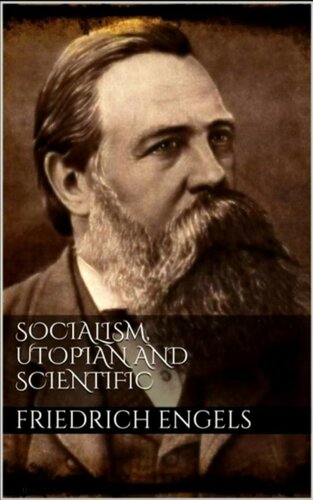Product desciption
Socialism Utopian And Scientific Friedrich Engels by Friedrich Engels 9786051761732, 605176173X instant download after payment.
Long accepted as the leading popular explanation of the principles of scientific communism.
Modern Socialism is, in its essence, the direct product of the recognition, on the one hand, of the class antagonisms, existing in the society of to-day, between proprietors and non-proprietors, between capitalists and wage-workers; on the other hand, of the anarchy existing in production. But, in its theoretical form, modern Socialism originally appears ostensibly as a more logical extension of the principles laid down by the great French philosophers of the eighteenth century. Like every new theory, modern Socialism had, at first, to connect itself with the intellectual stock-in-trade ready to its hand, however deeply its roots lay in material economic facts.The great men, who in France prepared men's minds for the coming revolution, were themselves extreme revolutionists. They recognized no external authority of any kind whatever. Religion, natural science, society, political institutions, everything, was subjected to the most unsparing criticism; everything must justify its existence before the judgment-seat of reason, or give up existence.
Friedrich Engels (1820-95) was born into a prosperous business family in Barmen near Dusseldorf. Although apprenticed to his father’s business firm, Engel’s sympathies moved quickly in the direction of Communism, an orientation which was cemented by the beginning of his lifelong collaboration with Marx in 1844. They jointly published The Communist Manifesto on the eve of the 1848 revolutions. In 1850 Engels moved to Manchester where he eventually became a partner in his father’s firm, continuing to help Marx who was engaged in writing Das Kapital. On retirement in 1870, he settled in London from where his books such as Anti-Dühring had an immense influence on the nascent Marxist movement.


